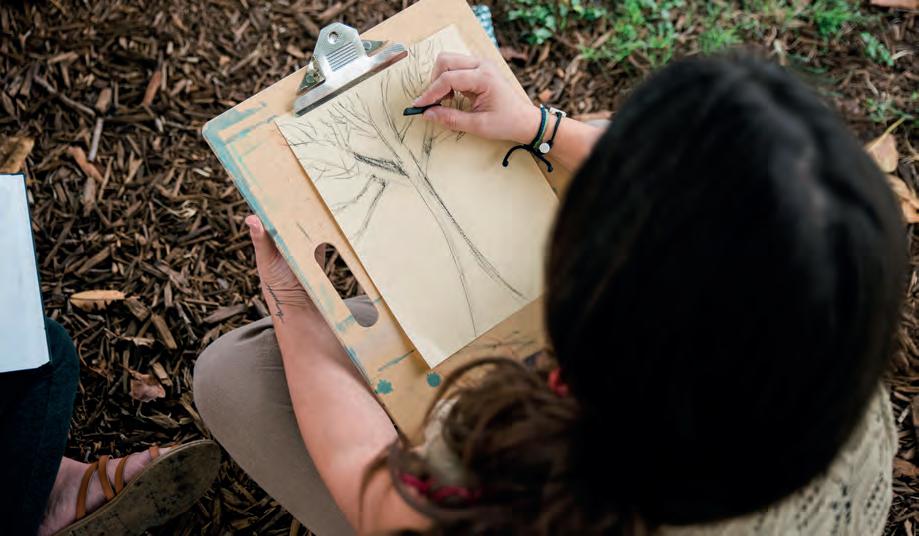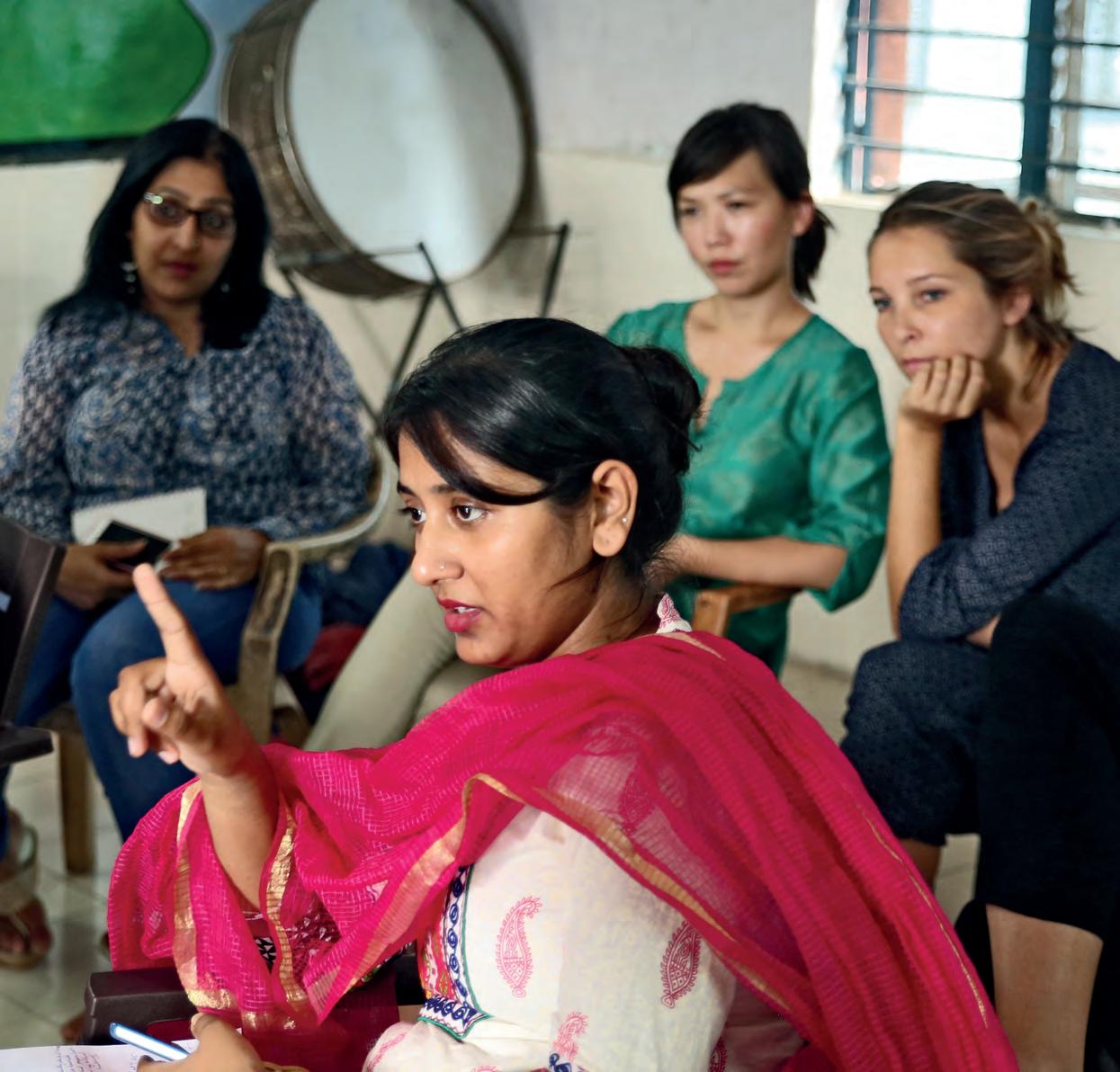International recognition of BTECs



We are the world’s leading learning company, with expertise in educational courseware and assessment, and a range of teaching and learning services powered by technology. Our products and services are used by millions of teachers and learners around the world every day.
Our mission is to help people make progress in their lives through learning – because we believe that learning opens up opportunities, creating fulfilling careers and better lives. Our more than 30,000 employees across 70 countries worldwide share a simple set of values. In everything we do, we aspire to be brave, imaginative, decent and accountable.
We work closely with teachers, learners, researchers, authors, thought leaders, policy makers and local experts to put education in the hands of more people around the world, in more inspiring ways.
We value the power of difference, so we embed diversity and inclusion in everything we do. And the only way to keep pace with all the exciting opportunities in education is to challenge the traditional models of developing new ideas. We’re building a culture of innovation and learning where every idea and perspective is valued and we push forward to be leaders in the world of education, so that our products reflect the people we serve – teachers and learners.
Pearson’s BTEC qualifications are recognised by a range of Ministries of Education and other recognition bodies, around the world. This brochure provides comprehensive information about the countries where BTEC qualifications are recognised and offered, and the organisations that recognise them.
We are continually seeking to expand the number of countries where BTECs are recognised to provide a vocational education option to a wider range of people. In addition to the recognition listed in this document, a wide range of universities, employers and professional bodies around the world accept and recognise students with BTEC qualifications. In countries such as Brunei and the Maldives, we have worked in partnership with their Departments for Education to develop BTEC qualifications for their learners.

Students in the UK who hold BTEC qualifications have high rates of progression between learning levels compared to other types of vocational qualification.*
784
Approved
Centres in 60 Countries
In 2016, nearly 1 in 4 students in the UK who got into university did so with a BTEC. * Employment
90% of UK BTEC students are employed full time after graduating.*
90%
Over 1 million learners every year choose a BTEC course, because they are high quality, hands-on qualifications grounded in the real world of work. Students learn by doing, and develop valuable employability skills that they will use throughout their future career or for progression into university.
BTECs are all about learning by doing and that means BTEC students can use what they learn in practice straight away. Throughout the course, students work on a series of assignments set in real-life scenarios, developing the practical knowledge and skills employers and universities are looking for. BTECs equip students with both the academic knowledge and practical skills necessary to succeed.
BTECs are career focused qualifications that offer more than just training for jobs. The suite includes a range of technical and professional qualifications that provide education for successful careers, either directly after the completion of the BTEC, or via university. To ensure quality standards and to give the best BTEC experience to students, we provide educational institutions with ongoing support from day one. Our specialist subject and support teams are here to help them all year round, offering guidance and tools including sample assessment materials, lesson plans and teacher training events. The breadth of BTEC subjects include art and design, business, healthcare, engineering, computing, service industries, sport and science. Recent years have seen a rise in the number of employers and higher education institutions choosing BTEC-qualified candidates for their specialist knowledge and technical skills, alongside their all-round life skills such as professionalism, leadership, management and interpersonal skills, which they gain through their BTEC course.
“ I would definitely recommend BTEC to other people. ”
Max Whitlock MBE, Double Olympic Gold Medallist (BTEC Sport)
BTEC Firsts range from Certificates to Diplomas. BTEC Firsts are equivalent to International GCSEs, and are tailored to the need of international schools, colleges and training providers. They are designed in a range of sectors for learners who wish to explore a work-related vocational qualification or specific industry area. The majority of BTEC First students are likely to be in the 14-19 age group, although the qualifications are suitable for learners of any age, seeking an engaging introduction to life and work in a vocational sector. BTEC Firsts are available in over 10 different, industry-relevant subject areas.
BTEC Nationals range from Certificates to Extended Diplomas. BTEC Nationals are equivalent to International A Levels and, like BTEC Firsts, can be tailored to meet local and regional needs. Alongside A Levels, BTEC Nationals are the most widelyrecognised UK qualification for admission into Higher Education. A large proportion of BTEC National students fall within the 16-19 age group, but the qualifications are developed to be suitable for any age in order to develop the relevant skills and knowledge in the given subject area. Across a range of sectors, BTEC Nationals equip students with the specialist knowledge, practical skills and understanding they need to progress along their chosen learning and career paths.
BTEC Higher National Certificates and Diplomas are internationally-recognised Higher Education qualifications that are equivalent to the first and second years of a UK undergraduate (Hons) degree. BTEC Higher Nationals are delivered at universities, colleges and training providers in 60 countries via 784 approved centres, with the flexibility to provide content to meet local needs. BTEC Higher Nationals are an ideal choice for students seeking a recognised, high quality, vocational route to a degree or employment. Higher Nationals have formal recognition and progression agreements with over 300 universities around the world, in addition to close links with employers and professional bodies. When studying one of the range of specialist Higher National subjects, students have confidence and reassurance that their qualification has the currency to progress them onto their desired next steps.
BTEC achieved at Level 1 (including BTEC Tech Awards) / GCSE grades 1-3 (or D-G)
Traineeship
BTEC achieved at Level 2 (including BTEC Tech Awards) / GCSE grades 4-9 (or A* to C)
BTEC Level 2 Technicals
BTEC
Key: Pearson level 1 qualification progression route
Pearson level 2 qualification progression route
Pearson level 3 qualification progression route
Pearson level 4/5 qualifications progression route
Other progression routes
Alongside A levels, BTEC Nationals are the most widely-recognised qualifications for admission to universities and colleges in the UK. In 2015, 95% of UK universities and colleges accepted students with BTEC qualifications, including competitive universities from the Russell Group (Which? University). In 2016, one in four students in the UK who went to university did so with a BTEC. Internationally, over 260 universities recognise BTEC Nationals for admission to undergraduate study, including those within the US, Canada, Australia, New Zealand and UAE. Selected universities in the US may also permit BTEC National students to apply for credit exemptions (advanced standing) within the first year of their degree.
In many countries around the world, students are also able to progress from a Higher National Diploma onto advanced standing, usually the final year of an undergraduate degree. Pearson have numerous recognition and progression agreements for BTEC Higher Nationals with a variety of higher education institutes worldwide, including in Australia, Malaysia, Canada and UAE. Formal agreements can be found on our dedicated Degree Finder website, which helps students, parents, teachers and other stakeholders understand and engage with the degree opportunities available to them.
We also work with employers and professional bodies around the world to ensure our qualifications offer the best outcome for students and businesses. We work with both employers and universities to design and develop qualifications which meet the needs of industry and support the individual in becoming work ready in their chosen field. We gain recognition for our qualifications as meeting industry requirements and roles by working with employers such as the BMW Group, Jumeirah Hotels and Vinci Construction. BTEC Higher National qualifications provide a progression route into membership and/or further studies towards a professional certification with a relevant professional body.
We are inspired by the dedication, drive and achievements of our teachers and learners; which is why we acknowledge this officially each year through the Annual BTEC Awards. Held in London each July, we recognise the outstanding performance of a BTEC International Student of the Year, as well as UK students and educational institutions. Since the launch of the BTEC Awards in 2011, we’ve had the privilege of hearing unique stories and examples of the outstanding work that goes on in BTEC classrooms across the globe.
Pictured below: Myint Myat Soe, BTEC International Student of the Year 2017.

UAE (Dubai and Northern Emirates – excluding Ras Al Khaimah)
Kuwait 4
Recognised by the Ministry of Education
4 4 4
Recognised by the Knowledge and Human Development Authority on behalf of the National Qualifications Authority
Oman 4 4 4
Recognised by Ministry of Manpower for training organisations
Recognised by Ministry of Manpower for training organisations. Higher Education Institutes can deliver only with articulation agreement with UK university
Jordan 4 4 4 4
Recognised by the Ministry of Education
Bahrain 4 4 4
Recognised by the Ministry of Education/Ministry of Higher Education
Qatar 4 4 Awaiting approval
Recognised by the Ministry of Education for delivery in schools, on a school by school basis
Turkey 4 4 4
Approved by the Ministry of Education for all K-12 schools
Implemented as part of the Vocational High Schools’ curriculum on meeting local requirements
SOUTH ASIA Level 1
Level 2 Level 3 Higher National
Pakistan 4
Approved by Inter Board Committee of Chairmen as equivalent to Higher Secondary School Certificate (Humanities Group)
Maldives 4 4 4 4
Recognised by the Maldives Qualifications Authority
Vietnam 4 4 4
Informal recognition from Department of Education and Training
Centre level recognition for delivery
Malaysia 4 4 4
Selected BTEC programmes approved by Malaysia Qualifications Authority QCF HNDs recognised by Malaysia Qualifications Authority
Singapore 4 Subject specific 4 Subject specific Ministry of Education recognises delivery of specific subjects and levels by specific organisations
Brunei 4 4 4 4
Recognised by Ministry of Education for delivery through MOE schools
Recognised by Ministry of Education for delivery through private colleges
Approved by Brunei Darussalam National Accreditation Council for delivery through private colleges
Thailand 4
Agreement with Ministry of Education that centres that meet local training provider licensing requirements can deliver
Hong Kong 4
Recognised by universities for university entry
Acknowledged as state qualifications and recognised by colleges for progression purposes
Recognised by Quality and Qualifications Ireland as aligned on Irish Framework Level 6. Accepted by universities and Institutes of Technology as entry qualification
Recognised by the Integrated Technical Educational Cluster Amirihah, managed by the Educational Development fund. Also by the Integrated Technical Educational Cluster Alsalam
Accepted by UK universities with local campuses, Mauritius Institute for Training and Development, The Mauritius Qualifications Authority and Mauritius Polytechnic
The Ministry of Education has recognised the benefits of offering BTECs to centres in Brunei since 2011.
Before the introduction of BTEC qualifications in Brunei, students in the country were entered for academic qualifications which were not suitable for all students.
As a consequence some students were leaving school without appropriate qualifications and were finding it difficult to enter the workplace. In addition, the country was experiencing a skills shortage and there was a growing problem of youth unemployment.
Representatives of the Ministry contacted Pearson and requested assistance. Pearson sent representatives to Brunei who listened to the concerns of the Ministry and proposed the introduction in Ministry schools of a range of BTEC Level 2 qualifications in subjects such as a Business, Art and Design and IT. Subject experts in these and other subjects visited the United Kingdom, and held meetings with their Pearson counterparts.
As a result, BTEC Level 2 qualifications were introduced in a range of subjects from 2011 onwards. Pearson provided training courses for the teachers who were delivering the subjects, and this training was updated in subsequent years.
Schools in Brunei now offer BTEC Level 2 qualifications in the following subjects: Art and Design (International), Hospitality and Catering, IT and Business.
“ Learning a skill and knowledge at the same time, it makes the learner twice as valuable than others. ”
MOE teacher on BTEC qualification L1 and L2
The MQA found that a number of students in the country were leaving their schools without qualifications which could help them to find work, or progress to further or higher education.
As a result the MQA contacted Pearson, which provides A level and International Advanced Level (IAL) qualifications for schools in the Maldives, and discussed the potential benefits of BTEC Level 2 qualifications with them.

Pearson provided centres in the Maldives with training which enabled them to offer a range of BTECs in schools throughout the Maldives. The initial trainees provided training in turn to other teachers by means of a cascade method.
The introduction of BTECs in schools in the Maldives was so successful that by 2018, approximately half of all students within the 14-16 age group in the country were studying at least one BTEC.
The Maldives Qualifications Authority is responsible for all schools in the country.The Inter Board Committee of Chairmen (IBCC) is responsible for coordinating the activities of regional examination boards in Pakistan. It is also responsible for granting equivalence to foreign qualifications with corresponding qualifications in Pakistan.
The IBCC has for many years recognised Pearson Edexcel’s academic qualifications such as International GCSEs, A levels and International Advanced Levels (IALs).
Pearson discussed the provision of BTEC Level 3 qualifications with the IBCC and provided them with evidence that the qualifications were already widely recognised in the UK and around the world as being equivalent to A levels and IALs. Pearson also provided evidence of the training provided to potential BTEC centres and the rigour of the quality assurance processes used by Pearson.
As a result the IBCC agreed in January 2018 to grant equivalence to the BTEC Level 3 Extended Diplomas at a comparable level to the Humanities group of the local Higher School
Secondary Certificates, in the same way that the IBCC provides equivalence for Pearson Edexcel’s A levels and IALs.
In future all schools in Pakistan who wish to do so, will be able to provide students with the BTEC Level 3 Extended Diplomas. Students who take the qualifications will be able to progress to universities in Pakistan or elsewhere in the world to continue their studies for BTEC Higher National Diplomas and degrees.
“ BTEC qualifications provide best value for money to learners.These qualifications give knowledge, transform personality and thinking style and provide employers with much needed employability skills and technical skills as well as soft skills. They enhance the digital literacy level of learners and sharpen research skills. ”
Waheed Sharif, Managing Director, Institute of Business Skills (IBL) PakistanBTEC Level 1-3 qualifications have been delivered at K-12 Schools in Turkey since 2014 whilst BTEC Higher Nationals have been available in Turkey since 2011.
Turkish Education Association (TED) Schools were the first to implement BTEC in schools, and they have secured Ministry of Education approval in Turkey.
Thanks to this approval, all K-12 schools in Turkey now have the right to offer BTECs if they meet the MoE criteria. In addition, Turkish universities offer Higher Nationals as part of the Vocational High Schools’ associate degree programmes. Implementation of HNs are subject to Higher Education Council’s (YOK) approval.
Turkish Education Association (TED) University’s senior officials visited Pearson UK in October 2017 and signed a Memorandum of Understanding to kick off a cooperation for delivery of HNs and teacher training, as well as supporting recognition at YOK level.
One student who benefited from the availability of Higher Nationals in Turkey, completed an HND Automotive Engineering at Uludag University in Turkey and then did his top-up at Derby University gaining a BEng (Hons) degree. The collaboration with YOK means that his Derby degree has recognition of equivalency to a Turkish engineering degree, which has helped him secure his first engineering role in Turkey.
In 2015, the BTEC Level 3 Extended Diploma in Hospitality was launched by Ladies College Sri Lanka as a new pathway to university.
Students on the programme are able to gain practical hands-on experience in five star hotels, including the Cinnamon Group of Hotels, as part of their studies.

The first batch of students not only passed with distinction, one in particular was the only student to receive the High Achievement Award in Sri Lanka.
All of them received offers from William Anglis, a leading hotel school in Australia which included an
exemption from 5 modules in the 1st year at university, a concession never previously afforded by this institution.
In 2017 Ladies College introduced Business Management, as a second BTEC Programme. They also signed an agreement with Chandigarh University in India, gaining an exemption from the first year of the undergraduate programme for Hospitality and Business Management for BTEC students.
KHDA is the Regulator for the private sector in Dubai and Awards Dubai (QAD) is the Vocational Dubai Awarding Body.
On 16th May 2018, an agreement was signed between Dr Abudalla Al Karim from the KHDA and Rod Bristow of Pearson to recognise Pearson Qualifications in Dubai, both Vocational and Academic.
Pearson provides KHDA with appropriate information regarding Pearson Centres in Dubai and those applying to become Pearson Centres.
The UAE is circa 11 million population, with circa 1 million Emirates and 48% of them live in Abu Dhabi. The private education sector in Dubai is critical for sustainability and attracting the best expatriates. Emiratisation is a key issues and the main problem in the UAE is a reliance on government jobs and very few emirates in the private sector.
As a result, private education is critical for Dubai as they seek to be an Education Hub in the Middle East. KHDA and QAD rely on information from Pearson to attract the best people and build its reputation and capacity. The signing of the agreement is a clear understanding that the relationship between KHDA and Pearson is working and well valued.
“ The new Higher Nationals offer students a study route that makes them ready for employment with the correct balance of theory and practice for their future career development and learning needs. ”
Eileen Roddy, Salford University“ The Higher National in Business is a balanced programme of study covering all the key areas of business to allow students to either progress onto level 6 study or enter the workplace with an appropriate range of skills that employers require. ”
“ Here at Middlesex University, we value Higher National students and the range of skills and knowledge they bring with them as a result of their qualifications. We have found that Higher Nationals provide learners with both generalist and specialist knowledge in their particular subject field, through the range of units offered. The content of Higher Nationals appear to provide valuable knowledge and practical, real-life skills, setting up learners for progression onto a degree and employment. It is evident that Higher National programmes have been developed and redeveloped with contribution from industry and university expertise, with a focus on career pathways and progression. Higher Nationals and Pearson itself have a strong and long-standing reputation for high quality qualifications, quality assurance and worldwide recognition. We are happy to have Higher National students as part of our community. ”
Gurdip Binning, University of Middlesex Ruth Brooks, University of Huddersfield“ Life and successes are made through a series of successive choices. The importance of these choices at this point of my life have not only helped me gain confidence in myself but have also helped me develop both my self-esteem and social expectations.
This can be very hard for any teenager but is developed through Family, Friends and most importantly your Education. ”
“ The BTEC Diploma is a programme, which gives the opportunity for development of an all-round skill set. It is developed in a way that we are not tested through the pressure of a sit down exam but assessed through our understanding and presentation of knowledge learnt. This program has also allowed me to apply the knowledge acquired in other areas of interest outside of the program. ”
Suhail Woods,
BTEC National Extended Diploma in Business(Braeside
School, Kenya)“ My name is Ho Chun Tat. I am 26 years old. I am a student of the Higher Diploma in Construction and the Built Environment in HKCE. I worked in a construction company for about 3 years. I found myself lacking in construction knowledge, so I decided to enter school again. In this period, I studied after the office and use the internet technology for further student. ”
“ When I finished the assignment on the BTEC course, I got confidence and knew that if I gave more effort, I would get good results, so the good result comes from my effort and tears. In fact, life itself is a learning process.
Thank you! Thanks BTEC! ”
Ho Chun Tat, BTEC Higher National Diploma in Construction and the Built Environment (Hong Kong College of Engineering, Hong Kong)
